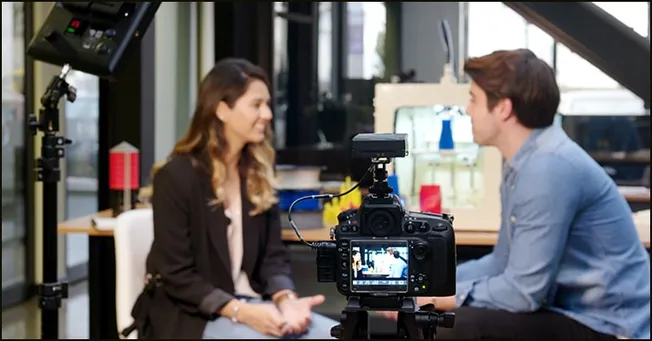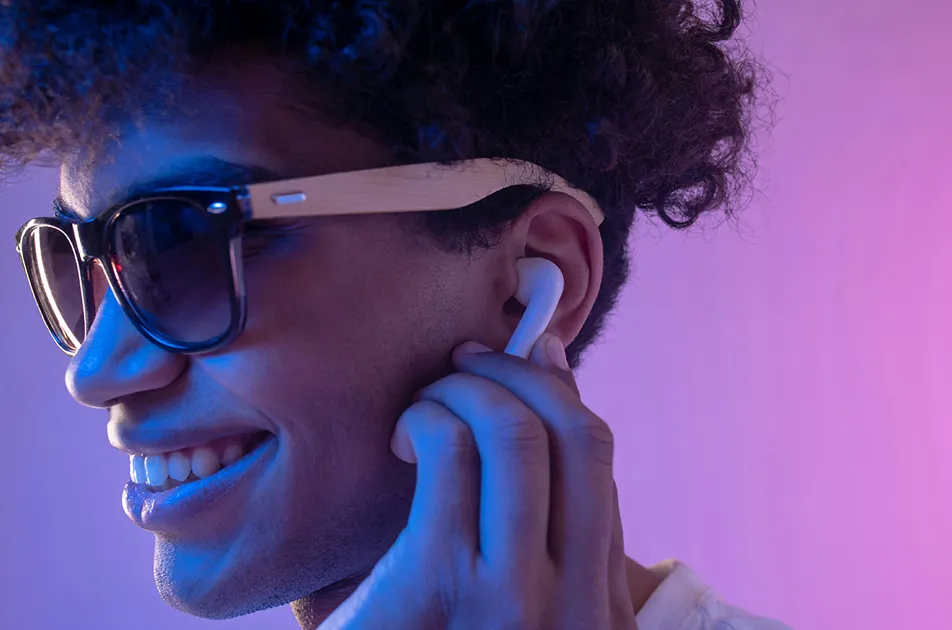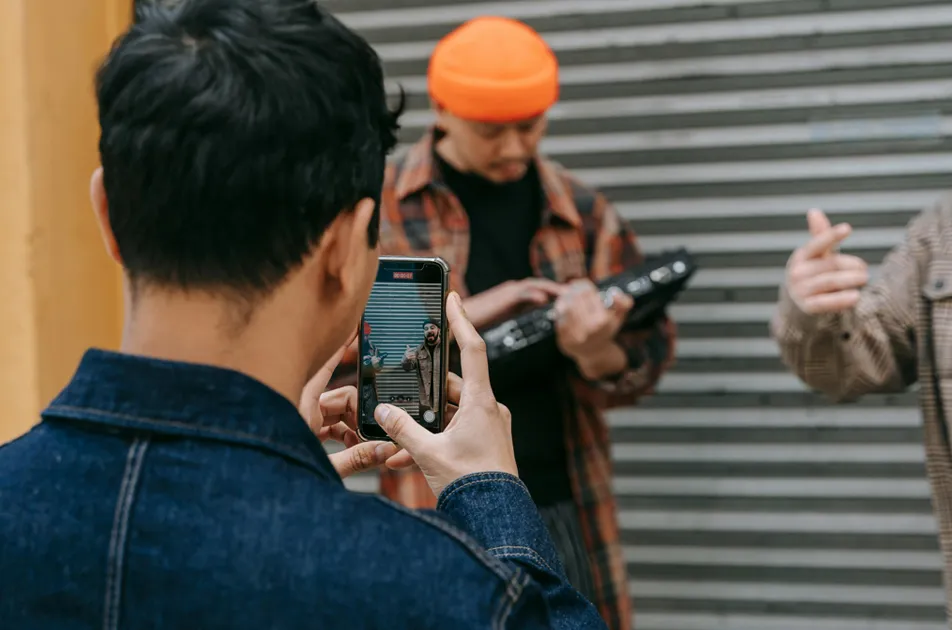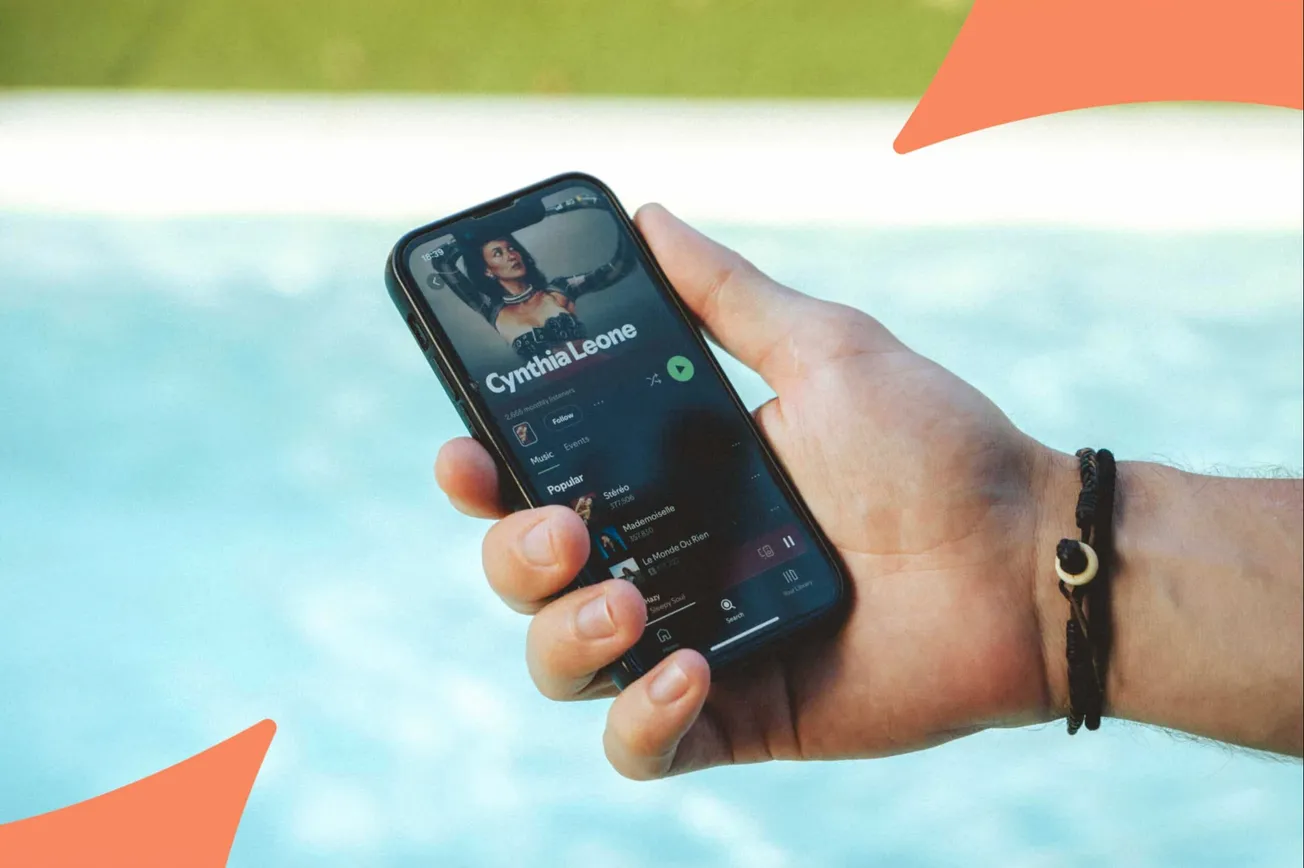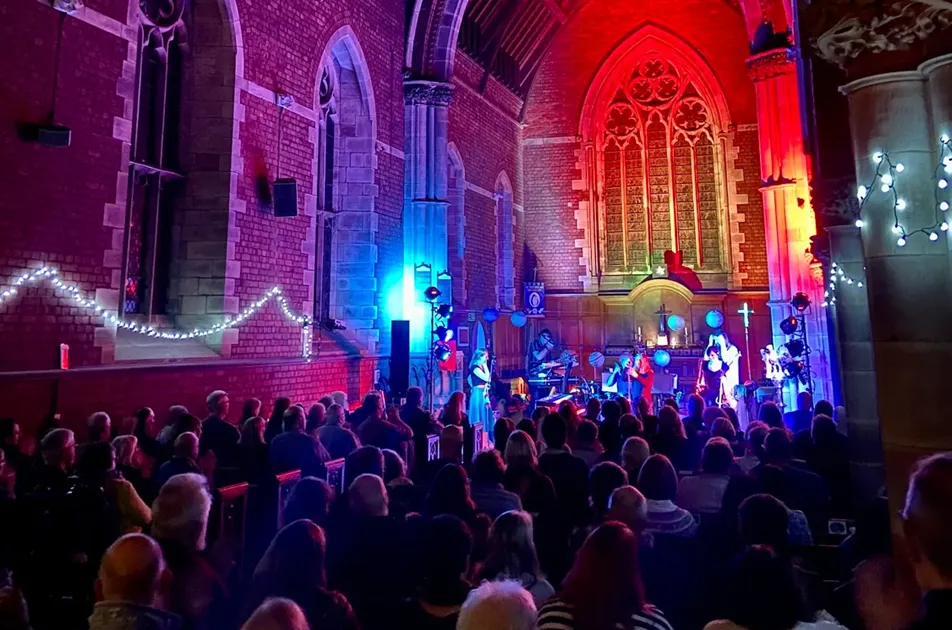As an artist, every interview you do is an opportunity to get your message across, and promote you music and merchandise. That said, truly getting the most out of an interview requires some careful preparation beforehand.
Guest post by Randy Chertkow and Jason Feehan of the Disc Makers Blog
When being interviewed, it’s important to promote your music, merch, and more while being entertaining. Follow these steps to prepare ahead of time so you can maximize your message.
While you’re likely using streaming services to perform and connect with fans (and using great audio and lighting techniques), another way to get in front of people and expand your fan base is by getting interviewed to get coverage on someone else’s live stream, show, podcast, or through the press and media. To make sure you maximize your exposure and make the most out of the chance to get in front of a new audience, create buzz, and make new fans, you need to prepare.
Our last article, “Tailor your music marketing campaigns for paid and earned media,” introduced the concept of earned media: channels you try to influence either by getting mentioned or featured.
Whether you reach out directly to the press/media (or podcaster, YouTuber, etc.) or get contacted directly, interviews are opportunities for you to deliver your message. This means you’ll want to help the interviewer make the interview as engaging as possible, all while being able to control the message to promote your music and events. But unlike broadcasting messages on your channels (website, social media, advertisements, etc.), you don’t have a direct say in the message they ultimately write. The only thing you can control are the words you say in the interview and the material you give them before and after the interview.
Your goal for any interview is to give the interviewer what they’re looking for while influencing them to cover points you want to publicize about you and your music. The ability to handle interviews well takes a little time to learn because it happens in real-time, but you can prep for an interview like you practice for a show. Having a good set of talking points, sound bites, and stories at-the-ready are like having a setlist and can help you control the flow of the conversation and keep you on-message.
Here’s how to prepare to maximize your exposure:
1. Research the journalist
Knowing who’s interviewing you is the most important thing to know ahead of the interview, yet, this is the step that most musicians skip. Spend a few minutes searching the name of the journalist on the web to give you an idea of the types of stories they write, whether their work is usually negative or positive, what their interests are, who else they’ve interviewed, their style, and what they’ve been working on lately.
If the interviewer has a personal blog, podcast, or Twitter account, be sure to review any recent articles, episodes, or tweets to talk about things they are interested in. Doing so will help you build a closer connection. This is important since it’s their show or news segment and they’re in charge of the interview. By building rapport with the interviewer, it’ll make the interview process — and even the final story — more likely to go in your favor.
2. Ask the interviewer what they want to cover
Before the interview, ask the interviewer to provide the questions ahead of time, or if they don’t want to provide the exact questions, at least share which topics they want to talk about. What most interviewers want to cover is what you’re doing now — your current release or event that triggered the interview, related stories, and background on who you are and how you started with music. It may also include a performance.
Good interviewers will do their research and often come into an interview situation already knowing a bit about you and the angle to the story they want to capture. If it’s an interview for a written article, don’t be surprised if they’ve partially composed it already and are just fishing for original quotes, such as finding out more details about you and your music that aren’t covered in your bio, on your website, or in your press/media materials.
3. Prepare talking points
Talking points are at-the-ready topics, ideas, and messages you want to cover during the interview. They are your most powerful tool to influence what an interviewer covers or writes about, and you should go into every interview with them. Good talking points can often alter the interview as the interviewer might ask follow-up questions about what you want to say, which gives you more opportunities to promote your message.
Key talking points should be on the topics you want covered in the interview: the release of your new single, EP, or album; recent positive press you received; upcoming events; or key points from your current marketing and PR campaign. Some other talking points you should have at-the-ready are short, entertaining answers to common musician questions such as “Who are your influences?” “Where do you get your ideas?” and “How did you start?” By having pithy answers to these questions, you can help make sure the interviewer spends more time on what you want to promote and cover.
If you’re not on camera or sitting directly in front of the interviewer, we recommend having these talking points written out in bullet points in front of you so you don’t have to memorize them. They are also handy in case you have an inexperienced interviewer that gets off track, since you can use them to take control of the interview and start talking about the points you want to cover.
4. Create sound bites
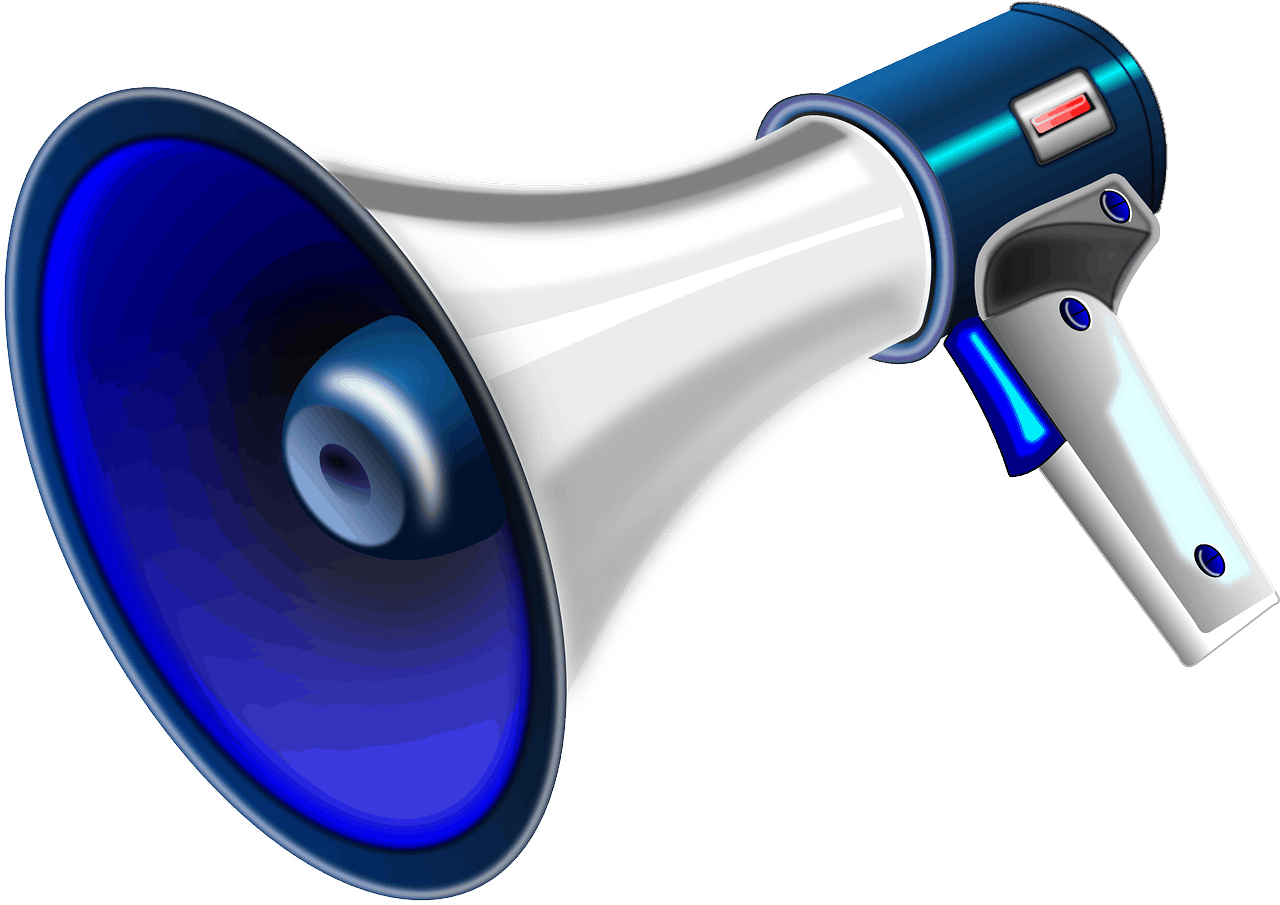
The best kind of talking point is a sound bite, which is a pithy, quotable statement that’s made to get quoted in print or a snippet shown on video. These are the quotes that they use to promote the interview since it’s so punchy, entertaining, or controversial. Effective soundbites are likely to be used in the coverage as is, with minimal or no editing. For instance, our band Beatnik Turtle would often drop in the fact that we “wrote one song for every day of 2007: 365 songs in total.” This simple phrase immediately resonated with interviewers and led to follow-up questions asking us to talk more about our “Song of the Day” project and the music we created during it. At the time, our website was exactly what we wanted to promote and by weaving the sound bite talking point into the interview, we invited listeners to check out the site and music.
5. Prepare stories
You should always have stories about you, your music, your work, or live performances at-the-ready so you can launch right into them. Stories are memorable and engaging to listeners and the interviewer. When you’re able to weave in a story, it has a higher chance of being covered. Plus, a good, entertaining story can make you stand out as an interviewee. When that happens, you have a higher chance of being asked back in the future simply because the interviewer enjoyed what you brought to the interview, ultimately providing a better and more engaging show for their audience.
6. Give them fact sheets and follow-ups
When your interview is over, the follow-up is a critical post-interview step. Beyond thanking them for the opportunity, this follow-up gives you one more chance to influence the coverage, editing, and even the way it is marketed. Your follow-up message should thank them, provide any additional information, include links you promised during the interview, and ask if they need anything else. This allows you to reinforce your message as well as fix any potential misunderstandings. You may also want to include a bullet list or fact sheet they can use to write about you, including a short bio, your hometown, your discography, spellings of everyone’s last names, etc. This also makes it easy for them to write the descriptive text of their video or text article.
— — —
The more interviews you do, the more practiced you’ll become at creating engaging stories while promoting your music. But even if you get good at handling questions on the fly, there’s no reason to wing it if you can prepare ahead of time, especially since every interview and interviewer is different. A good interview depends on your personality, the chemistry you have with the interviewer, and your preparation. Since preparing is the one thing completely in your control, make sure to put these items together and make the most of your media coverage to maximize your exposure.
Authors of the critically-acclaimed modern classic, The Indie Band Survival Guide, Billboard Magazine called Randy Chertkow and Jason Feehan “the ideal mentors for aspiring indie musicians who want to navigate an ever-changing music industry.” Their latest book, Making Money With Music (Macmillan) and free Making Money With Music Newsletter, help all musicians — from startups to pros — build a sustainable music business so you can make money in today’s tech-driven music environment.

